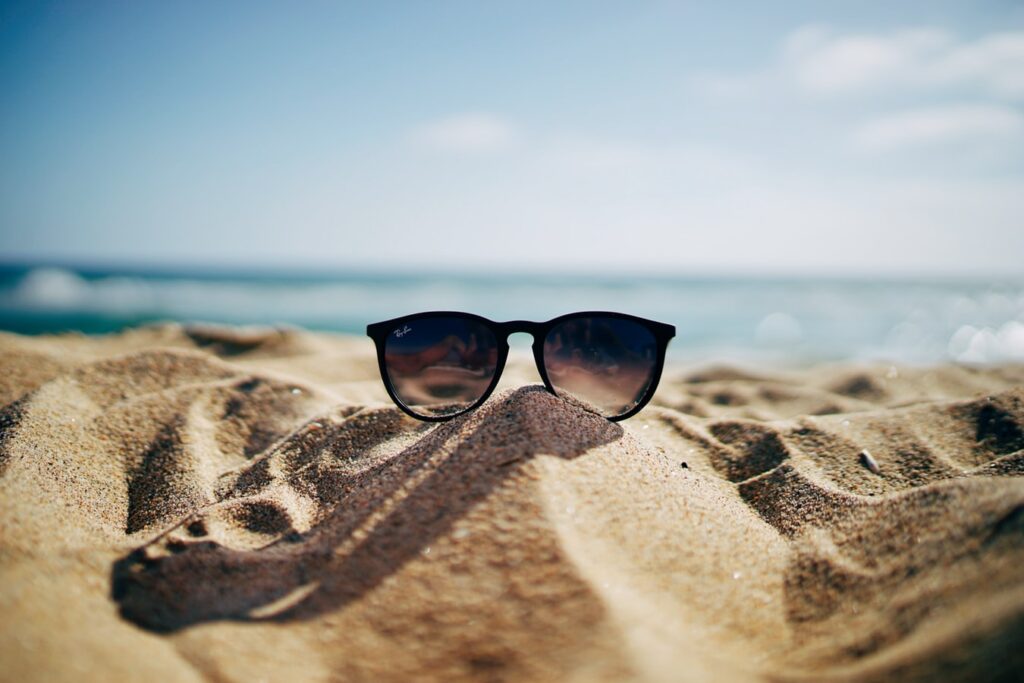How Does The Sun Affect Your Eyes?

In Australia, with our high levels of UV radiation, we need to take special care to protect our eyes.
Australia’s sun worshiping culture means the country’s 22 million people are 13 times more likely to develop skin cancer than the global average, according to Cancer Council Australia, during summer in Australia, all parts of the country experience long periods during the day when the UV level is 3 or above. With Melanoma a massive threat to Australian’s as the form of the most virulent skin cancer, now is time to start protecting yourself.

What do my eyes have to do with skin cancer?
Strong sockets of the skull called orbits encase and safeguard your eyes, however, it is the thin tissue surrounding them, including your upper and lower eyelids, which are extremely vulnerable to damage from the sun’s ultraviolet rays. It is because of this sensitive area of skin that non-melanoma skin cancers on and around the eyelids are extremely common and have great potential to be highly damaging. It is this exposure that can have serious consequences to eye and general body health.
Short term eye problems
Photokeratitis is inflammation of the cornea caused by UV radiation, another common eye issue occurring is called Photoconjuctivitis. Photoconjunctivitis is when the conjunctiva (the mucous membranes on the front of the eyeball and inside the eyelids) are inflamed, a result of irritation by UV radiation. Both feel like a sunburn to the eye and are caused by harsh UVB rays.
Caused by both looking at the sun and UV reflections bouncing off water surfaces, snow, concrete and sand.
Symptoms can include;
- a ‘gritty’ sand paper like feeling in the eyes;
- excessive blinking and watering;
- blurred or ‘foggy’ vision
- difficulty looking at bright lights; and
- swelling of the eyes and surrounding areas
More serious and long-term problems
The effects of sunlight on the eye are cumulative and depend on the length of time spent in the sun.The sun’s damage to the eyes does not stop with skin damage. Exposure to both visible light and UV radiation is also a factor in the gradual degeneration of the retina, cataract, damage to the cornea, and pterygium.
Cataracts
- UV rays are one of the known causes of cataracts, a gradual clouding of the lens of the eye that can destroy vision. Cataracts develop slowly, eventually result in symptoms, such as blurred vision.Wearing sunglasses can help in preventing and prolonging the possibility of cataracts.
Pterygium
- Known as surfers eye, pterygium is a soft fleshy overgrowth of the conjunctiva, the clear layer on the surface of the eyeball and inside the eyelids. A pterygium usually starts at the corner of the eye near the nose. Pterygia are usually flesh-coloured and pink.
- A pterygium is usually painless, but if left untreated it may grow across the cornea, causing vision problems.
Pingueculae
- A pinguecula is a yellow-ish coloured growth on the conjunctiva. Like a pterygium, it often forms in the corner of the eye near your nose, but differently, it will not grow across the cornea.
- As well as UV light, wind and dust are thought to contribute to their development.
Skin cancers around the eyes
- Skin cancers around the eyes, especially on the eyelids, are common in Australia due to our high exposure to UV and can be extremely damaging to both your general and eye health.
Macular degeneration
- Macular degeneration leads to progressive loss of central vision, leaving a person with blurred or no vision at all in the centre of their field of vision.
- The Cancer Council Australia states that long term UV radiation exposure is associated with macular degeneration.
As part of a comprehensive SunSmart lifestyle incorporating clothing, sunscreen and shade, Cancer Council Australia recommends wearing close-fitting wraparound sunglasses and a broad-brimmed hat to protect the eyes from ultraviolet (UV) radiation.

With summer soon approaching now is the time to look after your eyes. Make sure to book in for an eye exam and be proactive about wearing top quality sunglasses to ensure your eyes are performing at their best and are protected against harmful skin cancers.







